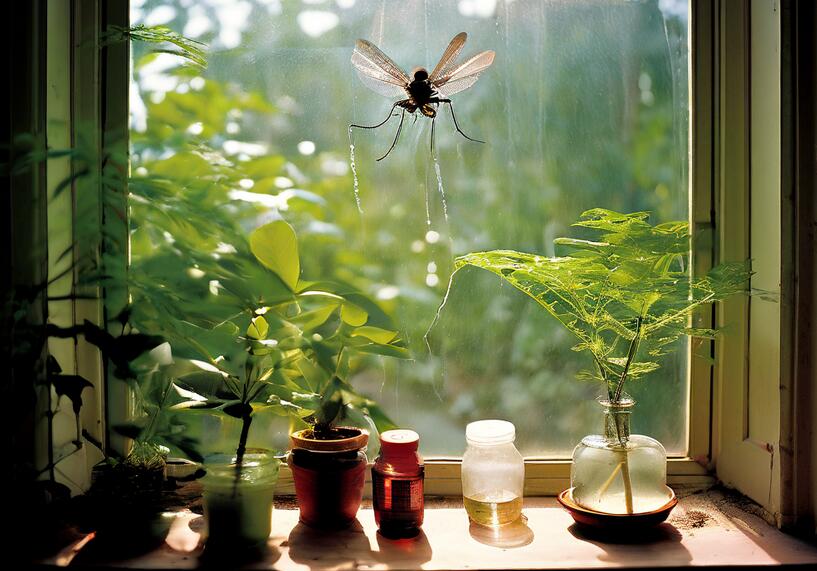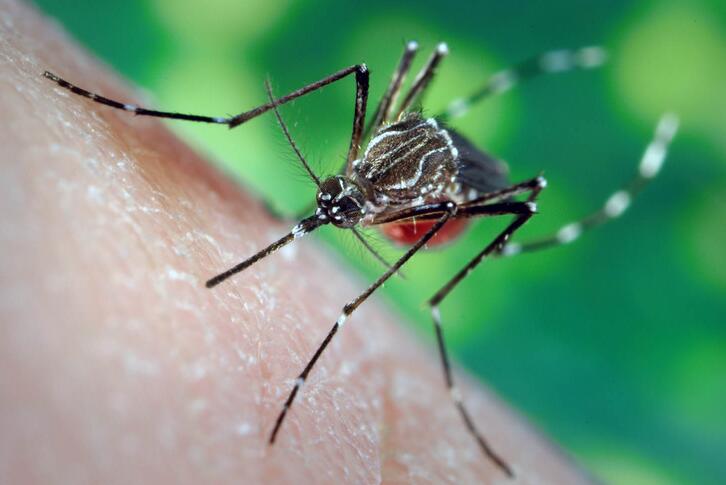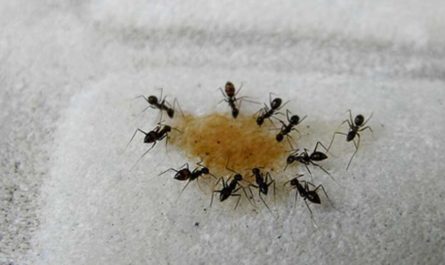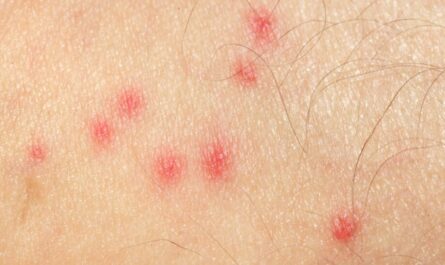Mosquitoes can be a real nuisance, especially when they invade your home. Not only are their bites itchy and annoying, but they can also transmit diseases like malaria, dengue fever, and Zika virus. If you’re tired of constantly swatting at these pesky insects, it’s time to take action. In this article, we’ll share 16 proven tips to help you get rid of mosquitoes in house naturally.

How to Get Rid of Mosquitoes in House Naturally
1. Eliminate Standing Water
Mosquitoes lay their eggs in stagnant water, so the first step to getting rid of them is to eliminate any standing water around your home. This includes water in flower pots, buckets, gutters, and even small puddles.
Take a walk around your property and identify any potential breeding sites. Regularly check these areas for water accumulation and drain them immediately. Remember, even a small amount of water can attract mosquitoes and provide a place for them to lay their eggs.
Pro Tip: After rainfall, inspect your outdoor space for any new standing water and remove it promptly. Pay attention to less obvious spots like tarps, toys, and even the folds of patio furniture cushions.
2. Use Mosquito Nets
Installing mosquito nets on your windows and doors can prevent mosquitoes from entering your home. Make sure the nets are properly fitted and don’t have any holes or tears.
You can also use mosquito nets around your bed to create a barrier between you and the insects while you sleep. This is especially important if you live in an area with a high mosquito population or if you’re particularly sensitive to mosquito bites.
Pro Tip: When choosing mosquito nets, opt for those treated with insecticides like permethrin for added protection. Follow the manufacturer’s instructions for proper care and maintenance to ensure long-lasting effectiveness.
If you don’t have mosquito nets, you can create a makeshift barrier by hanging sheer curtains or drapes around your bed. While not as effective as proper mosquito nets, this can still help reduce the number of mosquitoes.
3. Keep Your Home Clean and Tidy
Mosquitoes are attracted to clutter and debris, so keeping your home clean and tidy can help reduce their numbers. Regularly vacuum your floors, dust your furniture, and keep your home free of unnecessary items. This could provide hiding spots for mosquitoes.
Pay special attention to dark, damp areas like basements and closets, as these are prime locations for mosquitoes to hide and breed.
Pro Tip: Don’t forget to clean and declutter your outdoor space as well. Remove any old tires, empty containers, or other items that could collect water and attract mosquitoes.
4. Use Fans
Mosquitoes are weak fliers and have difficulty flying in windy conditions. Using fans in your home can create a breeze that makes it harder for them to fly and land on you.
Place fans near your doors and windows to create a barrier that keeps mosquitoes away. You can also use portable fans when spending time outdoors to keep the insects at bay.
Pro Tip: When dining outdoors, set up fans around your eating area to create a “windshield” that keeps mosquitoes from ruining your meal.
If you don’t have access to electric fans, you can create a simple hand fan using a sheet of cardboard or a folded paper plate. While not as effective as an electric fan, this can still help keep mosquitoes away from your immediate area.

5. Plant Mosquito-Repelling Herbs
Certain herbs like citronella, lavender, and basil are known to repel mosquitoes. Planting these herbs around your home can help keep the insects away while also adding a pleasant aroma to your outdoor space.
You can plant them in pots or directly in your garden. Crush the leaves and rub them on your skin for added protection when spending time outside.
Pro Tip: You can also create a mosquito-repelling sachet by filling a small cloth bag with dried herbs like rosemary, thyme, and mint. Hang these sachets near your doors, windows, and outdoor seating areas for a natural mosquito deterrent.
6. Use Essential Oils
Essential oils like peppermint, eucalyptus, and lemongrass are effective at repelling mosquitoes. Mix a few drops of these oils with water in a spray bottle and use it to mist your home and outdoor areas.
You can also apply the mixture directly to your skin for personal protection. Be sure to do a patch test first to ensure you don’t have any adverse reactions to the oils.
Pro Tip: Create your mosquito-repelling candles by adding a few drops of essential oils to melted soy or beeswax. Pour the mixture into candle molds with wicks and allow them to cool. Light these candles when spending time outdoors for a pleasant, mosquito-free ambiance.
7. Install Mosquito Screens
Installing mosquito screens on your windows and doors can help keep mosquitoes out of your home while still allowing fresh air to circulate.
Make sure the screens are properly fitted and don’t have any holes or tears. Repair or replace any damaged screens promptly to maintain their effectiveness. You can also use screen doors to create an additional barrier between your living space and the outdoors.
Pro Tip: For added protection, consider installing magnetic screen doors. These screens automatically close behind you. This can prevent mosquitoes from sneaking in as you enter and exit your home.
8. Use Mosquito Traps
Mosquito traps use a combination of light, heat, and carbon dioxide to attract and capture mosquitoes. These traps can be effective at reducing the mosquito population in your home, but they may not eliminate them completely.
Place the traps in areas where mosquitoes are most active, such as near windows and doors. Be sure to follow the manufacturer’s instructions for proper use and maintenance.
Pro Tip: Some mosquito traps require regular cleaning and replacement of attractants. Set reminders to ensure you’re maintaining your traps properly for optimal effectiveness.
You can create a simple mosquito trap using a plastic bottle, sugar, yeast, and warm water. Cut the bottle in half, mix the sugar and yeast in the bottom half, and add warm water. Invert the top half of the bottle and place it into the bottom half. The mixture will attract mosquitoes, which will become trapped in the bottle.
9. Keep Your Lawn Trimmed
Mosquitoes like to hide in tall grass and weeds, so keeping your lawn trimmed can help reduce their numbers. Regularly mow your lawn and remove any overgrown vegetation around your home.
This will also make your yard less attractive to other pests like ticks and fleas. Keep your landscaping well-maintained to minimize potential mosquito breeding sites.
Pro Tip: After mowing your lawn, remove any grass clippings and dispose of them properly. Piles of grass clippings can retain moisture and provide a breeding ground for mosquitoes.
10. Wear Protective Clothing
When spending time outdoors, wear long-sleeved shirts, long pants, and socks to minimize exposed skin. Mosquitoes are attracted to dark colors, so opt for light-colored clothing instead.
You can also treat your clothing with permethrin, an insecticide that repels mosquitoes. Follow the instructions on the label carefully and allow the clothing to dry completely before wearing.
Pro Tip: When shopping for outdoor clothing, look for items made with mosquito-repelling fabrics. Some manufacturers use special treatments or tightly woven materials to create garments.
If you don’t have access to permethrin-treated clothing, you can make your own mosquito-repelling outfit. Just spray your clothes with a mixture of water and essential oils like citronella, eucalyptus, or lemongrass. Allow the clothing to dry completely before wearing.

11. Use Mosquito Repellent
Applying mosquito repellent to your skin can help keep the insects away. Look for repellents that contain DEET, picaridin, or oil of lemon eucalyptus, which are all effective at repelling mosquitoes.
Follow the instructions on the label carefully and reapply as needed, especially after swimming or sweating. If you prefer natural options, you can also use repellents made with essential oils like citronella or peppermint.
Pro Tip: When applying mosquito repellent, don’t forget often-missed areas like your ankles, wrists, and the back of your neck. Mosquitoes are attracted to these areas due to the concentration of blood vessels close to the skin’s surface.
Make your own natural mosquito repellent by mixing equal parts water and witch hazel with a few drops of essential oils like citronella, peppermint, or lemongrass. Pour the mixture into a spray bottle and apply it to your skin before going outdoors.
12. Keep Your Gutters Clean
Clogged gutters can provide a breeding ground for mosquitoes, so it’s important to keep them clean and free-flowing. Regularly remove leaves, twigs, and other debris from your gutters to prevent water from accumulating.
You can also install gutter guards to keep debris out and reduce the need for cleaning. Make sure your downspouts are properly directed away from your home’s foundation to avoid creating standing water.
Pro Tip: Schedule gutter cleaning at least twice a year, once in the spring and once in the fall. This will ensure your gutters are ready to handle the increased water flow during rainy seasons.
13. Fix Leaky Pipes and Faucets
Leaky pipes and faucets can create standing water that attracts mosquitoes. Regularly inspect your plumbing for leaks and repair them promptly. Even a small drip can provide enough water for mosquitoes to breed.
You can also install aerators on your faucets to reduce the amount of water that drips and accumulates. Don’t forget to check outdoor faucets and hoses for leaks as well.
Pro Tip: If you have a leaky outdoor faucet that you can’t immediately repair, place a bucket underneath it to collect the dripping water. Empty and clean the bucket daily to prevent mosquitoes from breeding in the accumulated water.
If you have a minor leak in a pipe, you can temporarily fix it using pipe repair tape or epoxy putty. These materials can be found at most hardware stores and can help prevent water from accumulating.

14. Use Mosquito Dunks
Mosquito dunks are small, donut-shaped disks that contain a bacteria called Bacillus thuringiensis israelensis (BTI). When placed in standing water, the bacteria kills mosquito larvae before they can mature into adults.
Mosquito dunks are safe for humans and pets and can be used in birdbaths, ponds, and other water features. Follow the instructions on the package for proper application and replacement.
Pro Tip: In addition to using mosquito dunks in standing water, you can also use BTI granules in areas with dense vegetation.
If you don’t have access to mosquito dunks, you can create a similar effect by adding a few drops of vegetable oil to standing water. The oil will form a film on the surface of the water, suffocating mosquito larvae and preventing them from developing into adults.
15. Keep Your Pool Maintained
If you have a swimming pool, it’s important to keep it properly maintained to prevent mosquitoes from breeding. Regularly clean your pool and ensure that the water is properly chlorinated.
Run your pool pump daily to keep the water circulating and prevent stagnation. You can also use mosquito dunks in your pool to kill any larvae that may be present. Keep your pool covered when not in use to minimize mosquito access.
Pro Tip: Make sure your pool cover fits tightly and doesn’t allow water to accumulate on top. A sagging pool cover can create pockets of standing water that attract mosquitoes.
16. Hire a Professional
If you’ve tried all of these tips and still can’t seem to get rid of mosquitoes in your home, it may be time to hire a professional pest control service.
They can assess your property and develop a customized plan to eliminate mosquitoes and prevent them from returning. A professional can identify potential breeding sites you may have missed and apply targeted treatments.
Pro Tip: When choosing a pest control service, look for a company that uses eco-friendly and pet-safe products. Ask about their experience in dealing with mosquito infestations and their success rates in controlling these pests.
Conclusion
Implementing these 16 natural remedies can help you create a mosquito-free environment and enjoy your living space without mosquito bites. You need to stay proactive, maintain a clean, and use a combination of prevention methods for the best results. With a little effort and persistence, you can say goodbye to mosquitoes and hello to a more comfortable, bite-free home.






